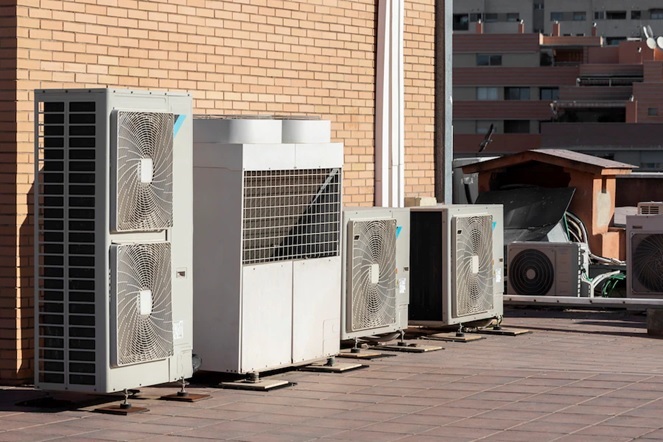HVAC systems come in various types. Some are mini split, others are packaged, while others are hydronic. Here are some examples.
Whether you’re building a new house or are looking to replace your old unit, you need to know which type of HVAC system is right for your home. Then, you can choose the best system that will work for your particular needs.
Mini split
A mini split HVAC system is a simple and effective way to cool and heat a home. Instead of having one central indoor unit, mini splits use a separate fan and evaporator units in each room. These units are connected to an outdoor compressor unit via refrigerant lines.
This allows the air to cool as it travels to the outdoor unit and then returns to the indoor unit. Mini-splits are easier to install than central HVAC systems because they only require a 3-inch hole in the wall and no structural modifications.
Mini split HVAC systems can cool a large home, but you should purchase equipment with the appropriate BTU rating for the space you have available.
A variety of factors will determine the proper size, including the number of floors, ceiling height, insulation depth, and window size. You can consult a sizing guide for more information.
Packaged
If you are in the market for a new air conditioning system for your home, package HVAC systems are an excellent choice. They contain all of the components of an air conditioning system in one compact unit that can be placed outside.
These systems are highly efficient, which will help you save on utility bills in the summer months.
There are many factors that determine the best-packaged HVAC system for your home. For example, you must consider the climate in your area and the cost of energy. You also need to consider whether your home is too hot or too cold for the system to run efficiently. If you live in a warm climate, air conditioning is likely your best bet. You can also choose one that features heating strips to keep the space comfortable even during cold weather.
Zoned
Zoned HVAC systems are smart HVAC systems that bring the appropriate temperature and air conditioning to specific rooms while keeping the unwanted air out.
They can be controlled by a variety of thermostats and registers, and go beyond the traditional “on/off” airflow to provide precise temperature control. They are also more energy efficient.
Zoned HVAC systems work in tandem with existing HVAC systems to customize the temperature of specific rooms or areas of the home. They are compatible with ductless and ducted systems and can provide customized heating and cooling.
Hydronic
Hydronic HVAC systems deliver heat by circulating hot water through pipes in the building. The pipes are typically insulated with a minimum of R-4. Larger pipes require a greater thickness of insulation.
The R-value of the insulation is important, as is its moisture absorption property. The system is designed to distribute heat evenly throughout the entire home.
The heart of a hydronic heating and cooling system is the boiler, which is comprised of a number of components. These components operate together with the system and are installed in a central location. They include the boiler, the chiller, the piping and pumps, and the accessories.
Keeping your HVAC system properly serviced is essential for maintaining a comfortable home and preventing expensive repairs. However, with so many different HVAC services available, it can be difficult to know which ones you need.
A basic HVAC service plan should include an annual inspection of your system, as well as regular filter changes and tune-ups. More comprehensive plans may also include duct cleaning and sanitizing, coils cleanings, and refrigerant charging.
By having a professional HVAC technician perform these services on a regular basis, you can help to ensure that your system is running efficiently and prolong its lifespan. In addition, regularly serviced HVAC systems tend to have fewer repair needs, helping you to save money in the long run.
Embrace comfort with Air Conditioning Group‘s specialized services for Kiwis. From heating to ducted air conditioners, our solutions are tailored for New Zealand’s climate, saving energy and lasting longer.







